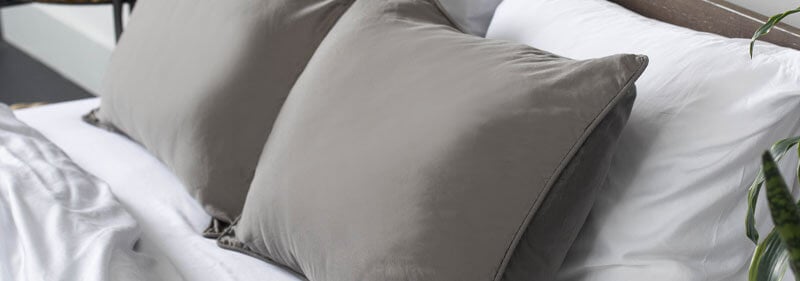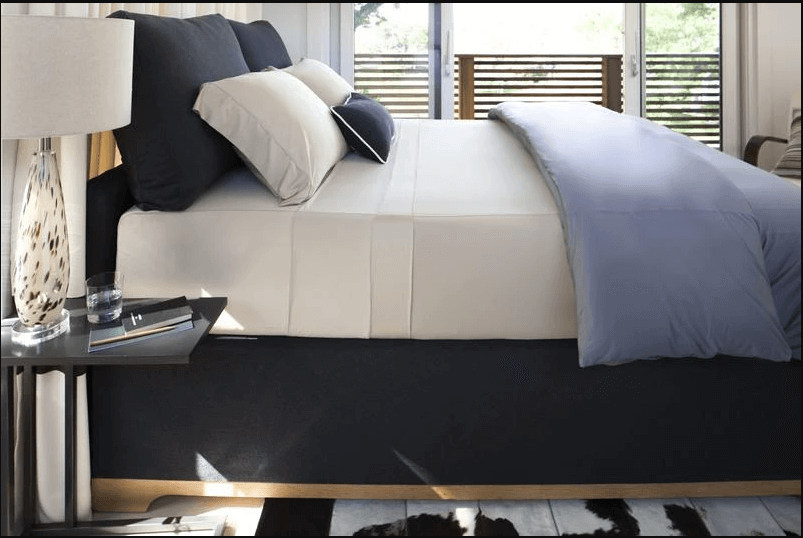The bedroom is a sanctuary for many couples as seven in 10 Americans who share a bed at night can attest. It's a time where they connect, bond and enjoy a sense of intimacy and relaxation. But when someone starts to snore or hog the covers, that's when things start to get troublesome.
Today, many couples are choosing to get a sleep divorce — an agreement where each person sleeps in a separate bed or bedroom. Keep reading to learn why sleep divorces happen, how sleep disturbances can affect your daily life and whether you should get a sleep divorce.
Why Do Sleep Divorces Happen?
There's a multitude of reasons why couples decide to sleep in separate beds. The most prominent cause for sleep divorce is snoring. One partner is snoozing away into a blissful nirvana, while the other one is subjected to a cacophonous onslaught that could rival a jackhammer. In fact, a recent study discovered that nearly 40% of people prefer to sleep separately from their significant other, with snoring being one of the top reasons for this decision.
Different schedules are another cause for couples signing the sleep divorce papers. Your partner might be a night owl, while you're an early bird. Or perhaps your significant other works nights and comes home at 3:00 a.m., only to wake you up from a deep sleep.
Bedroom preferences can also throw a wrench into a couple's quality of sleep. One person might like the room's temperature on the cooler side, while the other prefers it a little warmer. Maybe your partner brings their phone or tablet into bed and the light emitting from the screen is disrupting your ability to sleep.
How Sleeping Disturbances Can Affect Your Life

Whatever the sleeping issues may be, one study from the Paracelsus Private Medical University in Germany suggests that sleep problems and relationship difficulties usually happen around the same time. Another study from researchers at UC Berkeley states that a person who experienced a poor night's sleep caused by their partner resulted in relationship problems the following day.
The results of all this disruption often leads to an impaired sex life with your partner. Research has shown that sleep deprivation can lower testosterone, which may ultimately deplete your libido. One study also suggests that men who sleep six hours or less have a lower sperm count than men who get in the normal seven to eight hours of sleep.
Mental health is a huge factor to consider when you're going through restless nights next to your partner. It's no secret that having an occasional bad night of sleep can leave you feeling groggy in the morning, but when it becomes a perpetual issue, that's when more symptoms start to pop up. When you're continuously sleep deprived, you might experience mood swings, forgetfulness, a weakened immune system and a lack of concentration and motivation.
Should You Get a Sleep Divorce?
If disturbances caused by your partner are affecting the well-being of your daily life, you may want to consider sleeping in separate beds.
Communication is the key when deciding whether to opt for a sleep divorce. Talk with your partner and discuss why you want to sleep apart. Be sure you are kind when talking with your significant other. Having a belligerent tone will only make matters worse.
Many couples fear that a loss of intimacy may occur if they sleep in separate beds. Try scheduling some quality time together before bed, whether it's watching TV or going out on a date. You can also work out arrangements for sleeping. For example, you and your partner could sleep in separate beds on weekdays and sleep together on weekends.

Whether you decide to get a sleep divorce or not, SHEEX® Performance Bedding helps you achieve a deeper, cooler slumber. Our fabrics offer unbeatable comfort, incredible breathability and moisture-wicking technologies, creating an ideal sleeping environment.






